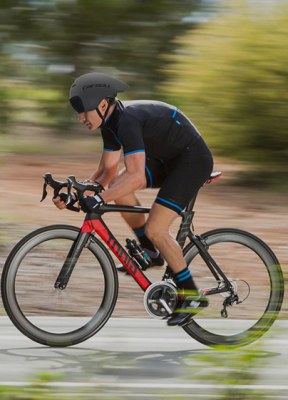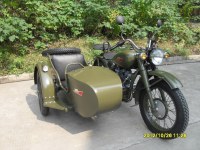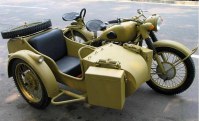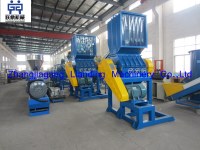TYPES OF TRI-AERO BIKE HELMETS
Triathlon Bike Helmet
Your Tri-Aero bike helmets from CAIRBULL
SHALL I BUY AN AERO HELMET?
Many bikers likes triathlons and time trials, you'll find some different kinds of aerodynamic helmets. Do you know how to choose a right aero road cycling helmet, aero road bike helmet from so many choices? There is no magic answer for you when choosing the right aero road helmet. Some people even spent lots of time performing aero testing (in a wind tunnel and velodrome), but they found even more questions than answers.
In this condition, I'll give you a bit of the science behind why you need to wear an aero bike helmet and also some tips that can help athletes to choose a helmet when testing is not an choice. Simply put, you train to get better at moving forward. You can use equipment to help you go faster with a given amount of effort.I usually refer to this as free speed because you move faster, or more efficiently, without increasing in fitness.When we look at time trials (I see triathlons as time trials), free speed (perhaps not in monetary terms) comes into full play.Each piece of equipment should be selected to minimize resistance.
As cyclists, we need to optimize the head/cylinder to reduce drag. How can we find the best way to do this? There are several factors that can affect how a particular aerohelmet performs on an individual. The main influencing factors are:
1.The position of bicycle
2.Position of head
3.Shape of Back
4.Comfort
The problem with having lots of experience testing athletes in wind tunnels or velodromes is that you'll see for yourself that the typical rules of thumb don't apply to everyone.A helmet that works well on one athlete doesn't work well on another.The position of the helmet can fool us, too.I've seen helmets that look the best and fit the athlete's back well actually test slower than the ones that don't. I've also seen an athlete break the aerorule by not pointing the tail of the helmet up, which is their fastest position.
Aero helmets are the most cost effective equipment when it comes to better aerodynamics.Having arighthelmet, as well as optimizing your positioning, can save minutesin your next race.
HOW DO I CHOOSE AN AERO HELMET?
Cycling helmets are designed to protect your head in the event of a collision, but aerodynamically skilled cyclists discovered that with some clever structuring, a covered head might travel through the air more quickly than a bare one.
When all other factors are equal, a cyclist wearing an aero helmet will be faster than the same rider using a regular bike helmet. According to the aero experts at Drag2Zero, an aero helmet that is adapted to a rider's position can be worth 10-15 watts, which over the course of an Ironman bike leg might result in time gains quantifiable in minutes.
An aero helmet may offer the best value for your money because it is such a little investment compared to a new bike or wheelset.
Aero helmet essentials
When selecting an aero helmet, factors other than wind tunnel data should be taken into account...
Shell
The shell is what gives a helmet its aerodynamic profile; it is made to slide along the ground if you crash and slide in the air while you're riding. Although the shape will often be a teardrop, there is a lot of diversity in the length of the tail. The majority of manufacturers use a smooth surface, but some argue that dimples resembling golf balls add even more zip.
Tail
The size and shape of a helmet's tail are important determinants of how well it will work for any given rider. If they remain flat against your back, long tails can be quite aerodynamic. However, if you duck your head or don't ride with a flat back, any benefits can quickly become losses. A helmet with a shorter tail or one without one would be preferable.
Foam
The expanded polystyrene (EPS) foam, which is intended to be sacrificial, is what absorbs the impact energy of a crash. This is why you should thoroughly inspect your helmet after a crash or if it is dropped, even if the shell shows no signs of damage.
Vents are always going to be a compromise between cooling and aerodynamics on an aero helmet. They create drag by drawing in air, which causes turbulence; however, without ventilation, you run the risk of overheating.
Visor
According to logic, a visor should reduce drag since it smooths out the frontal profile of your helmet and face. Independent wind tunnel testing on some designs, however, revealed that they are faster without the visor. The risk of overheating and fogging must also be taken into account, but they do have a cool appearance.
Cradle and straps
By reducing the frontal profile of your helmet and face, a visor ought to theoretically minimize drag. On other designs, independent wind tunnel tests, however, showed that they are faster without the visor. They look nice, but there is a risk of overheating and fogging that must be considered as well.
As a helmet manufacturer, we will provide more kinds of related products for sale, anything you need, please contact us.
Ubicación : 3/F, Bldg 1, Fanghua Industrial Zone, No.10, Lane 1, Xin' an 3rd Rd., Dalang Community, Xin' an St., Bao' an Dist., 518101 Shenzhen,
Persona a contactar : com cairbull, 0760 88960669








